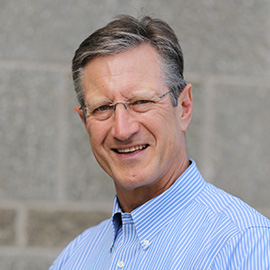6.4 Assessing Teams: Components of Great Teams

It is striking how many people consider their greatest accomplishments to be those they achieved while a part of a team, rather than feats they attained on their own. We have survived as a species for just this reason. We care about each other, the community, and many of us give up personal needs to serve the greater good because it feels intrinsically right to do so. As a team, the greater the challenge, the greater the joy in achieving together. How do we know if our team is functioning at its best, even when under pressure?
As we look at what enables great teams to be exceptional and sustain their greatness over extended periods of time, it is why and how they work together as a team, not individual responsibilities, that matter. Here is a summary of the relevant components we have covered in detail in previous blog posts; they must be considered when assessing teams:
A Compelling and Clear Purpose for Being
For an individual, a purpose is:
* A deep fundamental reason for existence, beyond making money
* The intrinsically motivating force that brings energy to life
Research has shown that having a sense of purpose, being able to say, “My life has meaning”—having a “why” for existing—is the strongest motivation humans have. When we work with others, the team’s why supersedes our own. The significance of what can be accomplished together so far exceeds what we can do alone that effort becomes a compelling vision.
Fulfillment and Purpose
To help our clients better understand the team’s motivations and how they can become more purposeful, we developed descriptions of four stages of personal fulfillment that track with one’s level of maturity, and also applies to teams. The higher levels of fulfillment are more motivating, meaningful, and enduring.
Stage III Fulfillment—Contributing for the Benefit of Others
What are we doing today, for the strategic benefit of others? This stage begins to dominate our lives when we mature emotionally and spiritually as adults. Joy, happiness, and fulfillment last many years as we make something of significance possible for an individual or community we care about deeply.
Stage IV Fulfillment—Legacy Fulfillment
Stage IV takes caring for others to the next level and is built on faith we are doing the right thing for a better tomorrow, for an outcome we may not live to see.
Is your team purpose compelling? It must be clear and deeply meaningful to your team. Can you measure the success of your purpose objectively? Your progress toward your vision? Regularly assess the clarity of your purpose, your vision, your why you do what you do.
The Principles of Trust and Caring
A great team has a Core Identity built upon two essential Guiding Principles: Deep Caring and Mutual Trust, both in service of others. Organizations may select the words that best represent how they like to be treated and like to treat others, but they must relate to and include these two principles. We discussed these principles in blog post 6.1 Great Teams: Core Identity Essentials.
Positive Mindset
The energy that comes from a positive team attitude and atmosphere is generative; it enables clearer thinking, better responses under pressure, and results that could not be achieved otherwise. The enabling of all the individual and collective resources of a team becomes possible with an attitude of abundance. There is more for all of us, so give what you have for the cause. Blog post 1.1 The Power of Positive Visioning discusses this critical component.
Responsibility for Results
Most of us want to be needed and wanted. To be needed and wanted requires being responsible for being where we need to be, when we need to be there, delivering what we said we would, for others.
The greater the connection of an individual to their responsibility to the team, the greater the opportunity for the organization’s purpose will be achieved. Be sure to connect team members’ responsibilities—and those of leaders—to the greater purpose of the organization.
Growth Mindset
Stanford University psychologist Carol Dweck has done groundbreaking research on the plasticity of mindset and has shared her ideas about a growth mindset in Mindset: The New Psychology of Success (2007).
While those with a fixed mindset are doomed to a self-fulfilling prophecy of a belief in their inability to change and develop, those with a growth mindset know their talents and abilities can be developed, a belief that fosters flourishing. The same concept applies to a team’s mindset.
In addition to having a mindset that sees the possibility of growth, it is important to be open to new ideas and other perspectives and to have a sense of curiosity.
Summary
When assessing teams, be sure to include the six components outlined above, which form the foundation for team greatness. While our work to unlock natural greatness was initially focused on athletic teams, it quickly became apparent that team greatness is not about the sport itself, it is about human nature, and our need to honor who we are when at our best.
The most consistent indicator all great teams is their shared passion and commitment to a vision for the difference they can make together—this supersedes all other criteria for team assessment. That said, once we have our shared vision energizing us, the boundaries of acceptability for the other five components will determine the smoothness and efficiency of the journey to the ultimate destination.
In our next post, we will discuss assessments.
Leadership Challenge Questions
- How clear and compelling is the purpose of your team?
- Do your team members feel a deep responsibility to each other for the success of the team?
- Is there an operating “at our best” norm that enables your team to be most effective?
- Is the how you work best discussed, and honored?
- Are there measurements of the team’s success that you share with the team?
This post is part of series drawn from Fritz Seyferth’s upcoming book on the Foundation of Greatness.






